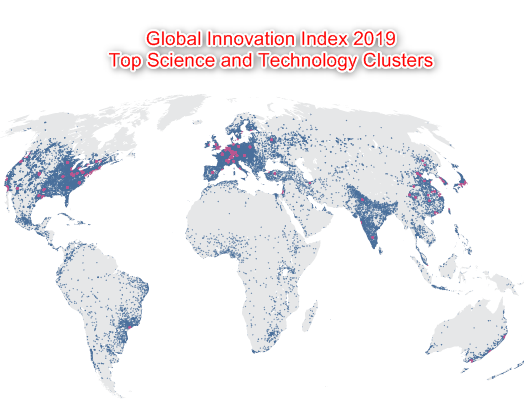
What are the trends in trademarks?
Registered trademarks are signs that allow us to distinguish and differentiate a product on the market. At present, annual trademark registration is being led by China. Based on these ideas, in this presentation we discuss the international market, its legislative changes and future forecasts.
The rise of trademark registration in China
China continues to lead in the registration of trademarks, as seen in the WIPI 2020 report published by the World Intellectual Property Organization (WIPO), and since 2015 it has received more registration applications than all the other countries in the world put together. One of the aspects that attracts the most attention is the shift with respect to the most active sectors, with the technology sector being the most important.
Applications for trademark registration have risen by 5.9% in 2019 compared to 2018 worldwide, according to the latest data published at the end of 2020 by WIPO, which has meant that different international regulations have had to adapt to market demands.
Trademarks in use grew 15.2%
Unlike most forms of intellectual property, trademarks can be maintained indefinitely by paying renewal fees at defined time intervals. In many countries, it is now necessary to prove the use of the trademark in order to proceed with renewal. In 2019, more than 58.2 million trademarks remained in use and active, representing an increase of 15.2% over the 2018 figures.
Analysis of the current situation and future forecasts
Despite how things might initially seem, and despite the simplified processes that national and international registry offices are introducing, the worldwide increase in the number of applications for trademark registration often makes the concession process more costly and time-consuming. This increase in the volume of trademarks means that trademark attorneys must spend more time reviewing and evaluating registers, which extends search report issuance times and complicates legal analysis.
It is now common for companies to request clearance searches, where analysts look for trademarks that could be considered similar, and therefore confusing, to a candidate trademark. Other potential reasons for refusal are also analyzed, and not only anteriority. These searches are carried out with tools powered by artificial intelligence and they have to use the correct language so that they take into account puns and their meanings.
Furthermore, the United States Trademark Modernization Act, which will take effect in December 2021, provides tools that could facilitate the granting of new trademarks, providing a faster and cheaper way to verify that old trademarks are not in use and thus remove obstacles. However, only marketing specialists with longer brand choice timelines will find the new procedures helpful. Companies that need to select a new trademark quickly will not have sufficient time to wait for the results of an Office Action, and therefore it is advisable to carry out an anteriority search, in addition to a use investigation, in case any relevant anteriority is detected.
With the increase in online commerce, there is a growing general awareness of the need for trademark registration. First of all, because the register itself is an alert for competitors. Registration will confer a presumption of ownership, an exclusive right and the ability to make a claim against another business that uses the same phrase or symbol, thus providing greater competitiveness.
Taking into account the benefits of registration, together with the boom in online commerce, which continues to grow, the future outlook is that trademark and domain name registration will also continue to rise.
The role of in-house IP attorneys
The "In-House Practice of the Future Think Tank" report prepared by INTA in late 2020, concludes that the roles of in-house IP attorneys will evolve as the nature of the work continues to change, taking on additional responsibilities under tight budgets and shifting towards a brand advisor or brand legal team role.
At SHIP Global IP, we have the legal and technological knowledge and the flexibility needed to adapt our processes to those of our clients allowing us to advise them on current and future needs in a wide range of industries and topics.












